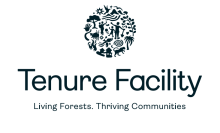Resource information
COVID-19 has negatively affected indigenous land rights, particularly for those who already face food insecurity as a result of land confiscation or grabbing and the loss of their territories. Prior to the COVID-19 crisis, the expropriation of indigenous lands and natural resources and the increase in conflicts on their territories were already placing indigenous peoples in a particularly precarious situation. The crisis has led to reports of encroachment upon indigenous land by opportunists, such as illegal loggers and miners. In the Amazon, threats, killings and land-grabbing are all reportedly on the rise, fuelled by mainstream political trends.
Additionally, numerous governments have announced plans to lower environmental standards and rollback regulatory standards. These policies are likely to result in accelerated deterioration of the environment and have negative impacts on the environment, and in particular for Indigenous Peoples.
On the other end of the spectrum, countries and communities see the COVID-19 crisis as a unique opportunity to seize upon a green and inclusive recovery. There is an increasing recognition of the need to scale up investments in sustainable mobility, renewable energy, building renovations, research and innovation, the recovery of biodiversity and the circular economy. Proposals include scaling up green investments and financing, as well as promoting a just transition to a green economy.
This webinar explored the effects of regulatory rollbacks on indigenous communities, and centered upon how indigenous communities can benefit from and contribute to global efforts to scale up green investments, financing and transitioning to a just and sustainable green economy.




